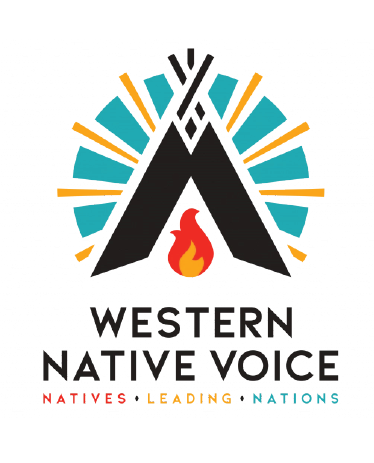Montana
Western Native Voice (WNV) works to nurture and empower new Native leaders and impact policies affecting Native Americans through community organizing, education, leadership, and advocacy. WNV is engaged on all seven Montana Indian reservations as well as in major urban centers, striving to protect the rights of Native American tribes and individuals to promote social, racial, gender, economic, and environmental justice to preserve their land, culture, and way of life for future generations.
Recent Achievements
After centuries of being treated as less than full citizens, Native communities finally achieved full voting rights with the passage of the Voting Rights Act in 1965. WNV has been a leader in combating voter suppression efforts that attempt to erode these hard-fought rights. WNV has actively participated in efforts to protect and expand the right to vote for the 73,000 Indigenous people in Montana and educates Native American communities about the importance of voting as well as about the voting process. Most recently:
WNV was a principal plaintiff in a case that struck down legislation that tried to make it harder for voters to get help returning their ballots and eliminated same-day voter registration, which disproportionately affected Native American communities who live on reservations and in remote areas.
WNV launched two initiatives to increase voter registration and turnout among Native American communities – and especially among younger Native Americans – energizing and empowering them to become engaged politically, while simultaneously raising awareness about critical issues that affect these communities. The “Empower Native Voices” program and Snag Dat Vote Tour are underway this fall.
The Montana Districting and Apportionment Commission developed more competitive state legislative district maps that will be used for the first time in the 2024 election and includes a new seat centered on the Crow Reservation.
What Makes Montana Crucial in 2024
U.S. Senator Jon Tester faces a competitive race for reelection in a “red” state, and his seat is essential for Democrats to maintain control of the U.S. Senate.
Cook Political Report has recently moved the first congressional district from “Likely Republican” to “Lean Republican,” signaling improved Democratic strength in western Montana and an opportunity to help flip the U.S. House of Representatives.
Voters have an opportunity to protect the right to abortion in Montana; the November ballot includes a measure that would enshrine the right to make decisions about one’s own pregnancy in the state constitution.
Two state Supreme Court seats are up for election this year, and the result may determine whether key victories will be preserved. The Montana State Supreme Court has been a bulwark against plans to curtail many important freedoms in the last few years, by striking down four laws restricting voting rights and several attempts to limit abortion, and in a landmark climate change case where it upheld Montanans’ right to a clean and healthful environment under the state constitution.
There is an opportunity for Democrats to gain a significant number of state legislative seats, breaking Republican supermajorities in both chambers, based on redrawn maps that have recently been implemented.
What Flip the Vote’s support means for 2024
WNV has organizers from local tribal communities working on the seven Montana Indian reservations to overcome obstacles to vote. These include language barriers and challenges in accessing polling places that are located 75 miles or more away. In addition, in a large state like Montana, locating members of the Native American community that don’t live on reservations can be a challenge. WNV has been organizing to meet, engage, register, and turn out growing numbers of Native Americans over the years, increasing Native American turnout from 60% percent to 65% in 2020, with a goal of increasing turnout by five more percentage points in 2024.
WNV focuses heavily on voter education, including how to register, how to vote (with a mock voting booth voters can step into to practice) and providing information about the offices and issues voters will find on the ballot. After meeting their initial goal to register 3,000 voters, WNV has increased their goal to registering 10,000 voters this year. WNV also invests significantly in a variety of innovative youth programs that champion the preservation of tribal identity and culture while emphasizing that civic engagement and voting are vital community traditions. In 2024, WNV is working to educate voters about the importance of the state Supreme Court and Jon Tester’s race, and energizing their communities based on the opportunity they have to vote for Native American candidates for local and state office. With support from Flip the Vote in the last weeks of this election cycle, WNV will hire more organizers for all of these programs, constituting their largest get-out-the-vote and election protection efforts to date.
“Our mission is to inspire Native American leadership and increase voter turnout across Montana. [Our voter engagement work] is more than just about registering people to vote—it’s about empowering our communities to use their voices in shaping our future.”


